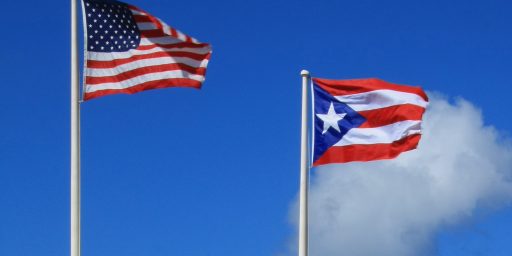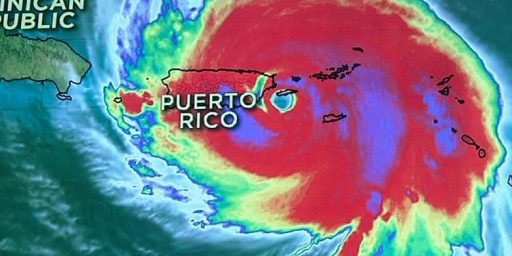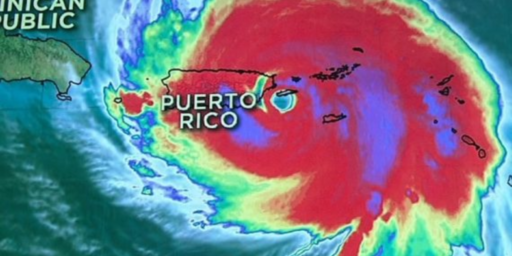Sharpton’s Dismal Showing
Fred Kaplan thinks Al Sharpton’s political career may be over:
In his home state yesterday, Sharpton won a mere 8 percent of the Democratic vote—only 3 percentage points more than Dennis Kucinich. Sharpton’s a smart guy, too smart to have thought he might actually win the 2004 presidential election. But he did think he’d win a lot of delegates, expand his constituency, control a few planks in the party’s platform, and earn a prime-time speaking slot at the convention.
The way things turned out, he’ll be lucky to get a ticket to the convention floor. Not only that, Sharpton has squandered his reputation in New York. Thanks to his sorry showing, his standing as sole spokesman for an entire community, his ability to mobilize an enormous base with the snap of a finger, and his power to inspire fear among any who dared cross him have been substantially diminished.
In recent years, the image of the new, mature Sharpton had started to ameliorate his history as loud, libelous rabble-rouser. In 1999, after four cops fired 41 bullets at unarmed African immigrant Amadou Diallo, Sharpton led the citywide protest rallies and kept them peaceful. Two years earlier, he’d run for mayor and won 32 percent of the vote in the Democratic primary. He flew to Sudan and bought a slave’s freedom. He went to jail for protesting the U.S. Navy’s live bombing runs at a Puerto Rico test site, and emerged from his cell (and a hunger strike) a leaner and, so it seemed, more thoughtful man.
His ambition had always been to be the black leader of New York City—modeling his style on Adam Clayton Powell—and, without question, he had accomplished that goal. With his presidential run, Sharpton sought to make himself the black leader of America, filling the throne that Jesse Jackson had left empty and even exceeding his hero-turned-rival’s showings in the 1984 and 1988 campaigns
***
Not only is Al Sharpton—to what must be his grave disappointment—no Jesse Jackson, he may no longer even be Al Sharpton.
And what a shame that would be.





Sharpton most certainly did NOT ‘squander his reputation’. He lost fared as badly as he did BECAUSE of his reputation.
He did much better in Senate races and other NY contests than in this primary campaign. Most of us thought he’d at lest make a showing in the urban areas and down South. He didn’t.
And that’s the problem — Sharpton’s appeal ends at the Hudson River. He’s going to do well in state races, but if the major media outlets were based in, say, Boston, no one would know who he was.
He also struggled to get his message across to the white majority Democrats. Part of it was his (idiotic) grandstanding (opportunism) on those high-profile cases in NYC. However, among the Washington (state, as opposed to the Other Washington) Dems I’ve talked to, the problem I kept hearing was that his only distinctive features were that he was a black preacher from NYC, and aside from that he was almost indistinguishable from Kucinich, Dean, or even Edwards.
Kucinich finished a strong third in Washington, Sharpton won 12 delegates. Washington is one of the most non-black states in America and has the lowest per capita population of regular churchgoers in the country. They also are rabid Mariners fans and hate all things New York. I think you have your reason for his collapse right there.
I’m interested in Harold Ford, Jr. Not just because he looks good.